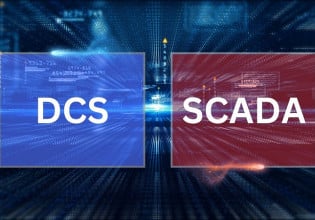A
Which software /language are used to develop the RsLogix-500 or Step-7 type of PLC packages inclusive of its various instructions e.g. timer , counter etc. etc. Is it VC++ or TC++ or Visual basic or the combination of such languages. Please help me to know the same.
With the background of long experiences in the areas of industrial automation and application programm development using RS Logix- 500, Step-5, Step-7 etc. can any one suggest what language I should learn to write program similar to PLC ladder logic so that I can develop the same on a PC and download it using serial port to any microcontroller based remote card to control machine function similar to PLC.
With the background of long experiences in the areas of industrial automation and application programm development using RS Logix- 500, Step-5, Step-7 etc. can any one suggest what language I should learn to write program similar to PLC ladder logic so that I can develop the same on a PC and download it using serial port to any microcontroller based remote card to control machine function similar to PLC.






